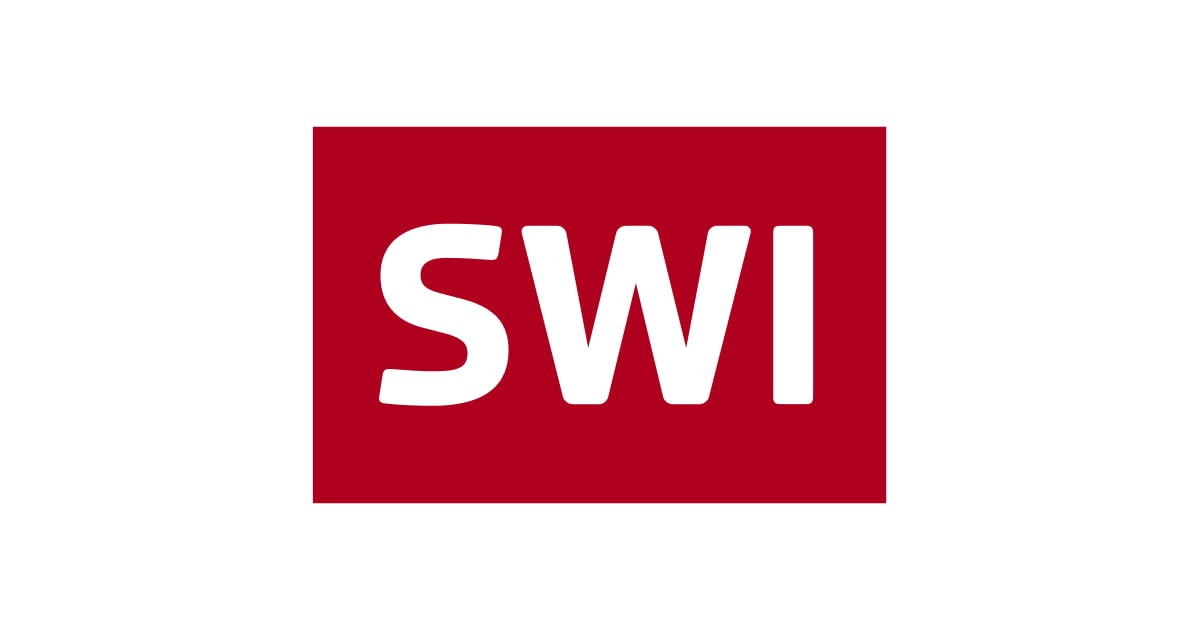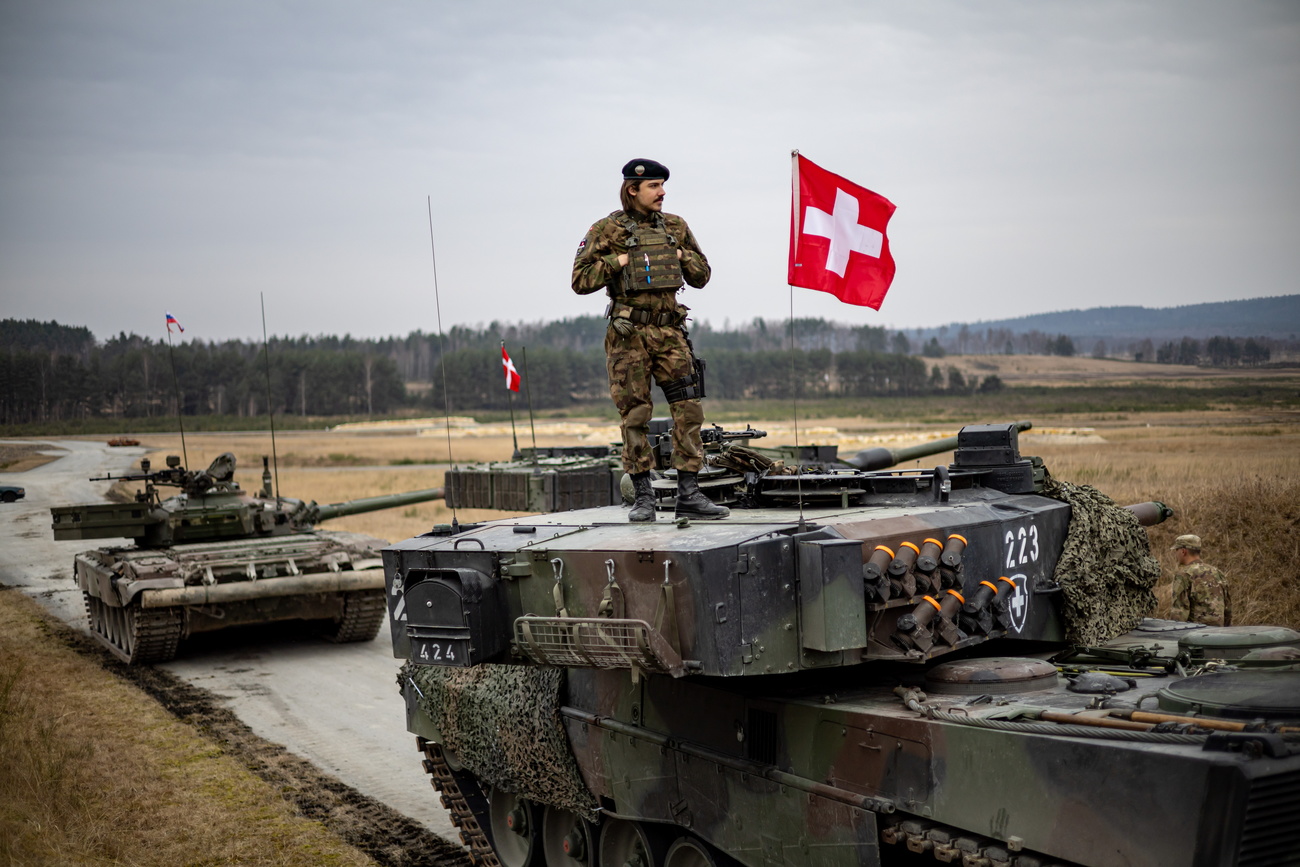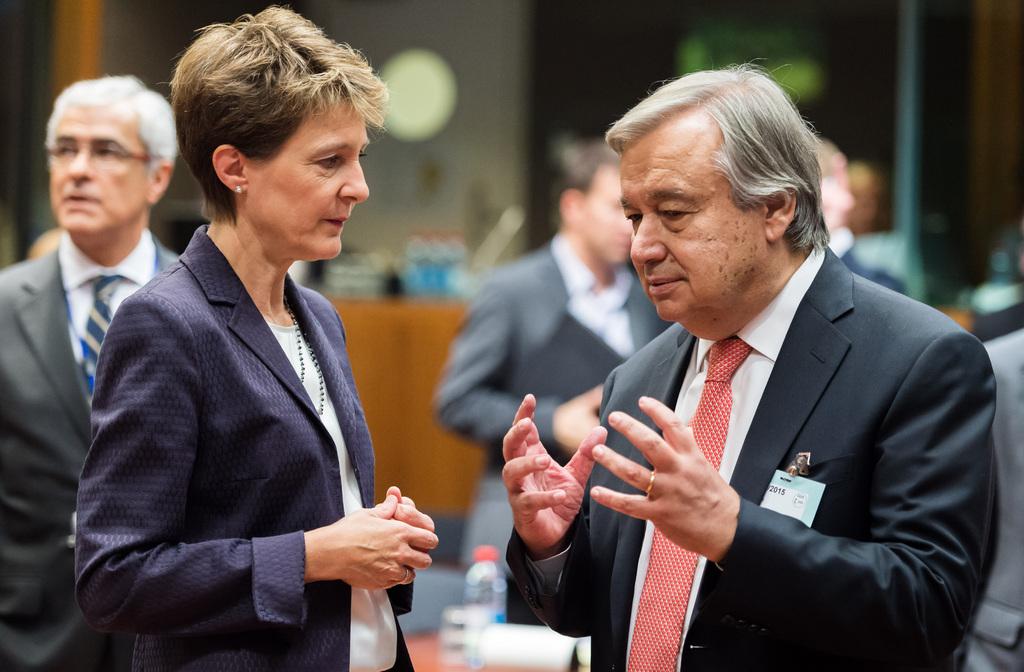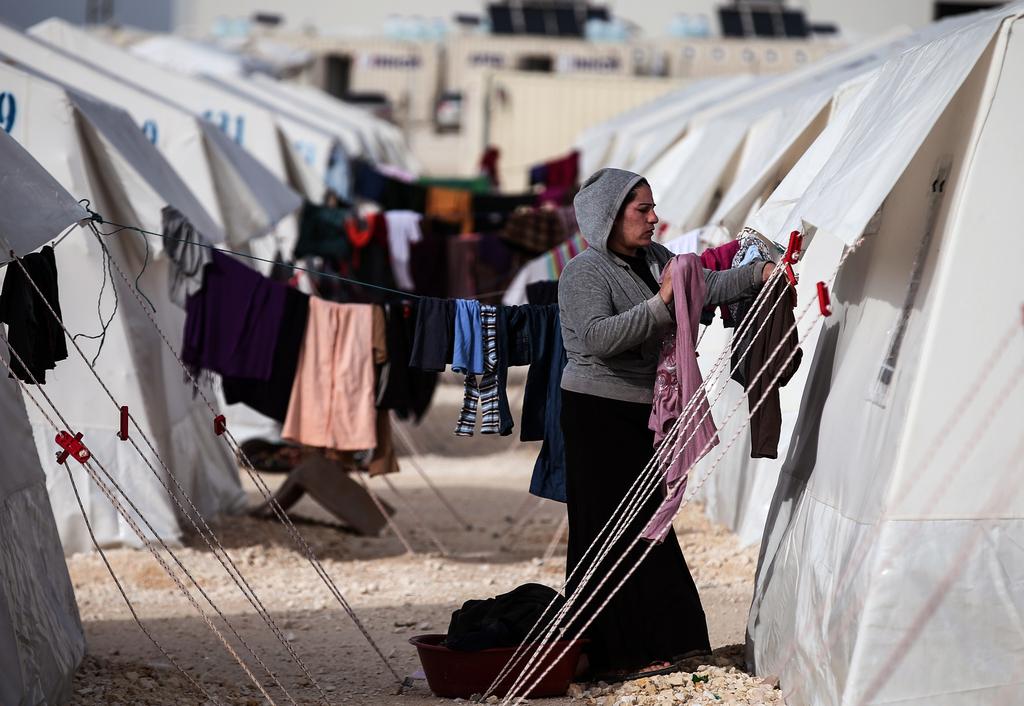Swiss pledge to take part in EU refugee programme

President Simonetta Sommaruga says Switzerland will participate in a European Union programme to relocate refugees fleeing the four-year conflict in Syria, as well as increase its financial contribution to international aid organisations.
“The government considers it important to take part in fair distribution across Europe of people in need of protection both at short notice as well as in the long term,” Sommaruga told a news conference on Friday.
In a first step, Switzerland will accept 1,500 refugees on condition they are registered as asylum seekers in neighbouring Italy or in Greece. The contingent is part of pledge made by Switzerland last March to accept 3,000 people under an international refugee effort.
Sommaruga said the government was also willing to consider up to 5,000 additional refugees over the next two years as long as the Dublin system of handling refugees remained intact.
She openly criticised the EU for failing to agree on a common asylum policy: “There are no national answers for a European problem.”
Switzerland has a moral obligation to help and it was in its own interest to cooperate with other European countries, according to Sommaruga.
The government does not expect a wave of migrants arriving in the country, but preparations are underway to increase spot checks at the borders and to accommodate asylum seekers across Switzerland.
Sommaruga also dismissed calls to re-introduce systematic border controls or proposals to close the borders at this stage.
Appeal
For his part, Foreign Minister Didier Burkhalter said the government decision was both a humanitarian and political response to the biggest refugee crisis since the end of the Second World War.
“It is an appeal to the international community to boost its aid efforts,” he said, pointing out the risk of the conflict in Syria spreading to other countries in the Middle East and in east Africa.

More
Six graphs to understand the migration phenomenon
The government has decided to increase its financial contribution by CHF70 million ($73.3 million) to help displaced people in the region and to boost long-term development projects. So far Switzerland has granted CHF198 million in aid to countries affected by the conflict in Syria.
“International aid organisations urgently need funds to provide basic aid,” Burkhalter said.
There are an estimated eight million people who have fled the conflict in Syria, about half of them live in neighbouring countries, putting an increasing strain on Lebanon and Turkey in particular.
Burkhalter said Switzerland would promote efforts for political dialogue in the Middle East.
He said Switzerland was notably negotiating access for humanitarian workers to people in need of aid.
“We have been in direct contact with the Syrian and the Iranian authorities over the past two years to improve the conditions for humanitarian missions. Nobody else has been active in this specific field,” Burkhalter said.
Political reaction
Switzerland’s main political parties gave a mixed response to the government plans.
The conservative right Swiss People’s Party said Switzerland was giving the wrong signal and was kowtowing to the EU. The party said Switzerland had done more than other countries in Europe to accommodate asylum seekers.
It has called for tighter controls at the Swiss borders to stop illegal immigrants from entering the country.
The leftwing Social Democrats described the government plans as insufficient. “CHF70 million for aid in the region is far too little. Switzerland could and should also do clearly more to take in refugees,” a statement said.
Other parties, notably the centre-right Radicals and the centrist Christian Democrats, welcomed the planned cooperation with other European countries on refugee issues.

In compliance with the JTI standards
More: SWI swissinfo.ch certified by the Journalism Trust Initiative














You can find an overview of ongoing debates with our journalists here . Please join us!
If you want to start a conversation about a topic raised in this article or want to report factual errors, email us at english@swissinfo.ch.